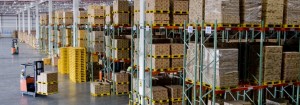Local Manufacturer Makes Global Strides in Logistics Weigh Scales
 Rarely do local companies make a pronounced statement on the global level. So when Walz Scale, a local business located in central Illinois, taps into the global logistics market in weighing scale system and solutions, it’s worth mentioning.
Rarely do local companies make a pronounced statement on the global level. So when Walz Scale, a local business located in central Illinois, taps into the global logistics market in weighing scale system and solutions, it’s worth mentioning.
Not only does Walz Scale serve the logistics industry, but the company caters to a wide range of markets, spanning from mining to construction. In this Zoom in Local post, we go deep into what makes Walz Scale a global leader in advanced scale systems and weighing solutions for logisitics operations.
The Importance of Weigh Scales for Logisitic Operations
Any reputable logistics management company understands that it has to use accurate weighing scales to measure the exact weigh of goods it has to transport. It is a fact that overloading trucks leads to punitive and costly penalties.
Additionally, placement and positioning of goods has to be done according to the weight of goods so that the weight is spread evenly across a truck. This makes the proper weighing scales critical to any logistics operation.
Any over loading of a truck puts the lives of the crew in danger because it may lose control due the brakes being compromised by the excess weight. Further, trucks that overload strain their engines and it may substantially shorten the life of the truck. Engines are made to handle a certain capacity and any additional weight increase reduces their performance.
Weighing Scales for Many Applications
For a company in the logistics industry, having the right weighing scales plays a huge role in the overall output of the business. Some of the most common scale systems include:
Pallet Jack Scales
These are the most practical scales for lift and fork trucks. The main benefit of pallet jack scales is that they allow one to measure the weight of an object on the spot. Many users also love this unit because it also comes with a digital scale indicator. This heavy duty unit has the capacity to measure loads of various weights. However, most pallet jack scales manufacturers has an overload protection in case one decides to use the unit to measure a load that exceeds its capacity.
Floor Scales
This is the most useful type of scale for measuring really heavy objects. Made with heavy duty materials, this floor scale is made for industrial functions. In some case it comes with a rugged platform that makes it easy to use in both dry and wet conditions. However, a user may still opt to go for a smooth and shiny weighing platform depending on the intended function. If one needs to measure items that have a uniform distribution of weight, floor scales are a good choice.
Conveyor Belt Scales
This type of weighing scale measures objects as they move through the conveyor belt in an industry where many products are released from the production line. In such a business, it is important to have a measuring unit that records the weight of the individual products as well as the weight of the entire goods to allow for proper planning. Conveyor belt scales offer a seamless means to measure weight of loads on the fly. And, Walz Scale happens to be one of the leading conveyor belt scale manufacturers in the world.
 Truck Scales
Truck Scales
If a business is serious about keeping its trucks within legal weight limits, it should have truck scales within its premises. A good truck scale should be able to give an accurate figure of the amount of load the truck is carrying.
It should be standard practice to measure all trucks as they leave the gate to avoid overloading or theft. If a truck is discovered to be carrying more weight that was initially loaded, it is a pointer that someone may have placed their own products on the consignment. Further, solid truck scales should give accurate results and withstand heavy usage. See the line up of Walz Scale truck scales to learn more.
Benefits of Versatile Weighing Scales 
The only way a business can be able to determine its profitability is by measuring the volume of products it moves. Weighing scales play an integral role by measuring products from the moment the raw materials enter the premises.
They are also used to measure the progress of the products through the production channel and any wastage of materials can be identified. In conclusion, scales are also used to measure the final product so that the end client gets what they have paid for.
